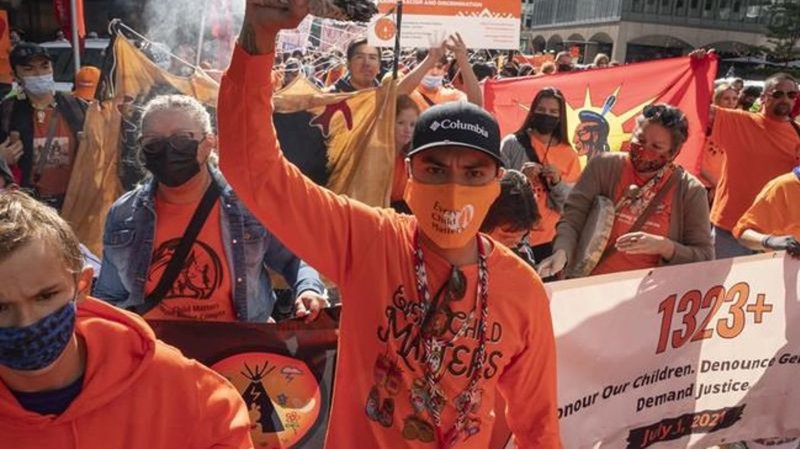
‘We shouldn’t have to push people’: Most provinces have not made Sept. 30 a stat
While Canada prepares to honour the second annual National Day for Truth and Reconciliation on Friday, the majority of provinces have not followed the federal government’s move to make it a statutory holiday for its workers.
New Brunswick, Prince Edward Island, the Northwest Territories and Nunavut have declared Sept. 30 a statutory holiday.
The other provinces and territories are choosing to observe the day in various ways, while some continue consultations with Indigenous groups and businesses about whether to make it a stat.
Some cities, schools and businesses are also choosing different ways to recognize the day.
